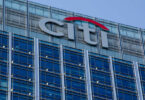Today Singapore-based Contour announced it is now in production. The blockchain trade finance platform is backed by some of the world’s biggest trade banks, including Citi, HSBC and Standard Chartered. Just eight months ago, the company incorporated with seven founding shareholders and added another five banks since then.
Going live is a critical step, but as we’ll explore below, doesn’t necessarily mean volumes will be quick to follow, as it takes time for banks to get into production and network effects to kick in.
Contour, formerly called Voltron, has an initial focus on Letters of Credit, which historically have involved a very paper based process. Pilots on the platform have demonstrated it reduces the average processing time from ten days to 14 hours.
“The timing could not be more prescient. The pandemic and subsequent lockdowns have amplified the need to find more effective methods of conducting trade, reducing the sheer volume and level of contact points, streamlining processes, reducing costs and improving efficiencies,” said CEO Carl Wegner.
“Together, we are enabling the instant flow of trusted data across the world’s trade routes and fragmented ecosystems, creating a streamlined future for businesses.”
The company was keen to emphasize that the platform doesn’t just support finance, but the trade transaction itself as well as risk mitigation.
The group has come a long way. In 2018 there was a lack of momentum, and HSBC moved the project forward by financing Hong Kong-based CryptoBLK to develop the platform further. Doing so seemed to restart the engine, and the leader of the HSBC blockchain team lead Joshua Kroeker is now Chief Product Officer at Contour. The platform uses the R3 enterprise blockchain Corda.
Contour was founded by seven banks, Bangkok Bank, BNP Paribas, CTBC Holding, HSBC, ING, SEB, and Standard Chartered. Since incorporation, Citi, Vietnam’s HD Bank, DBS Bank, SMBC and Standard Bank have signed up.
Experience elsewhere: from production to volumes
Of the so-called big four global trade finance blockchains, Contour is the last to go into production. However, if this follows many other networks’ pattern, it might take a little while to get going.
we.trade was the first to go into production in 2018, but it was up front that it considered the platform a minimum viable product at the time. It’s only due to start rolling out fully around now.
Next off the starting mark was komgo at the end of 2018. It had the advantage of an integration with VAKT, the blockchain platform focused on oil post-trade, which meant volume flowed more quickly. A year ago, it reached around $800 million in transactions and it’s now comfortably past a billion, although it doesn’t reveal financial figures. Like Contour, komgo’s initial focus was letters of credit (LC) and standby letters of credit (SBLC). Its volumes of LC and SBLC are around 300 monthly and it processes about 200 goods releases per month.
Marco Polo was next to go into production in mid 2019, although it highlighted that banks will go live one by one. It claims to have the largest group of banks as members. When asked today to clarify the number of banks in production, the network operator TradeIX said it cannot comment.
The challenge for all the blockchains is that the network effects are rather limited without numerous banks in production.
Meanwhile, in Asia several networks are starting to show serious volumes in the trade finance sector that Boston Consulting Group estimates will reach $25 trillion by 2027.
For example, Singapore startup dltledgers claimed to have processed more than $3.3 billion six months ago. But the overall volume prize likely goes to China’s Construction Bank, which has a multi-solution trade finance platform that processed more than $56 billion to the end of 2019. Also in China, a forfaiting blockchain initiated by CITIC Bank has processed $42 billion amongst 43 banks.
But it’s the latest trade finance entrant that should elevate the competition: China’s Ant Group, which owns Alipay and launch Trusple last week, with multiple Contour member banks as members.






